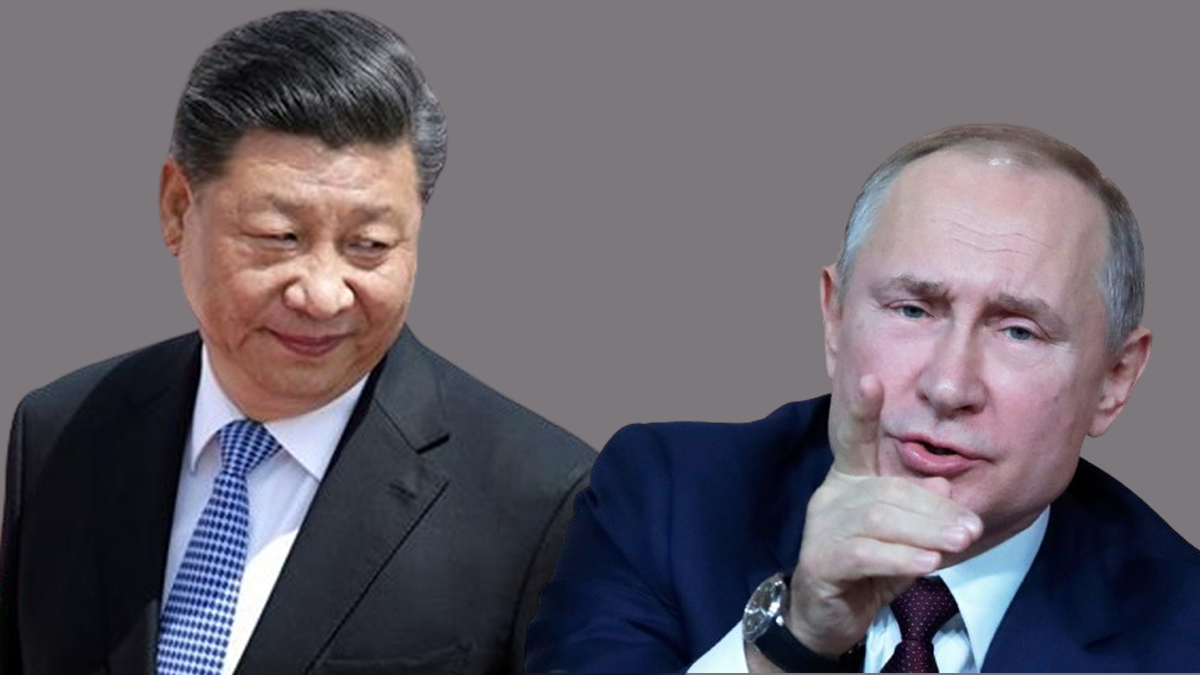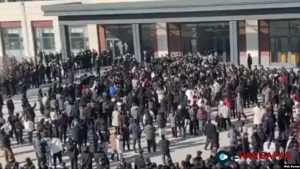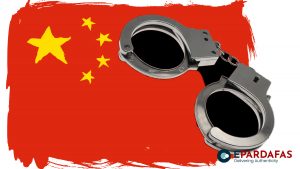
China Moves Inflict Severe Economic Blow on Russia

China’s state-owned banks are tightening curbs on funding to Russian clients as they fear being subjected to secondary sanctions from the U.S., according to a Tuesday report by Bloomberg.
At least two banks have ordered a review of their Russian businesses in recent weeks and plan to sever ties with clients on the U.S. sanction list. The banks will also stop providing financial services to the Russian military sector, according to sources familiar with the matter, and review companies including non-Russian clients doing business in Russia or sending critical goods to Russia through a third country.
The move comes after the U.S. Treasury Department announced last month that it would impose secondary sanctions on overseas financial firms and banks helping Moscow’s war effort in Ukraine and processing Russia’s transactions to buy equipment for its military.
Kremlin spokesperson Dmitry Peskov described the issue as a highly sensitive matter for the companies involved, but not for the Russian government.
“This is a very, very sensitive area and it is unlikely that anyone will undertake to talk about it—you shouldn’t expect that,” Peskov said, according to Reuters. “We continue to develop relations with China. It’s our very important strategic partner.”
Peskov added that trade relationships between the two countries are still strong, with Russia reporting a higher-than-expected volume of bilateral trade with China.
“We have confidently surpassed $200 billion and continue to grow,” Peskov said.
Chinese lenders stepped into the Russian banking sector at the same time as Western banks pulled out following Russia’s invasion of Ukraine on February 24, 2022, filling a gap that would have left the country’s economy much weaker than it is now. China is now the biggest importer of fossil fuel from Russia, having more than doubled its coal shipments since 2020.
Their exodus might be painful for Russia and for the Kremlin, especially as Beijing’s alleged fear of Western sanctions would signal that even leaders who have remained close to Moscow after the start of the war in Ukraine are wary of the likely financial cost of standing by the Kremlin.
But the move would also reflect China’s ambivalence toward Russia since the invasion of Ukraine. Despite offering diplomatic support to Russian President Vladimir Putin and promising to expand trade between the two countries, Beijing has kept from fully supporting the war in Ukraine and has not offered significant military assistance to Moscow.
Previous Western sanctions have made Russia weaker and more reliant on China, as they deprived the country’s central bank of access to about half of its international reserves and left it with only gold and yuan. Russian banks have also turned to China’s UnionPay after Visa and Mastercard suspended their operations in the country following the invasion.
Chris Weafer, chief executive officer of strategic consultants Macro-Advisory Ltd., which focuses on Russia and the Eurasia region, previously told Newsweek that Russia should be wary of this increased reliance on China.
“While China is eagerly buying energy and materials and selling Chinese-made goods to the Russia market, all of which suits Beijing, there is very little investment coming into Russia, certainly nothing like enough to replace the lost investment from exiting Western companies and investors,” he said.
But the move would also reflect China’s ambivalence toward Russia since the invasion of Ukraine. Despite offering diplomatic support to Russian President Vladimir Putin and promising to expand trade between the two countries, Beijing has kept from fully supporting the war in Ukraine and has not offered significant military assistance to Moscow.
Previous Western sanctions have made Russia weaker and more reliant on China, as they deprived the country’s central bank of access to about half of its international reserves and left it with only gold and yuan. Russian banks have also turned to China’s UnionPay after Visa and Mastercard suspended their operations in the country following the invasion.
Chris Weafer, chief executive officer of strategic consultants Macro-Advisory Ltd., which focuses on Russia and the Eurasia region, previously told Newsweek that Russia should be wary of this increased reliance on China.
“While China is eagerly buying energy and materials and selling Chinese-made goods to the Russia market, all of which suits Beijing, there is very little investment coming into Russia, certainly nothing like enough to replace the lost investment from exiting Western companies and investors,” he said.












Comments